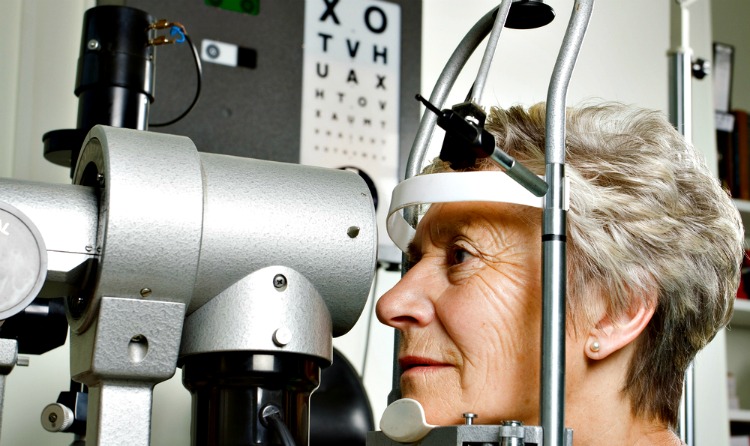4 Things Not Covered by Medicare

Insurance specialist Randy Frey has heard it too many times: Seniors finally get on Medicare and think that they’ll never have to pay for doctor visits, physicals or surgeries again. They don’t realize all the things not covered by Medicare.
Medicare is far from free. And many procedures that people think are covered by the federal insurance program aren’t.
“People are surprised that certain parts of Medicare can be fairly costly,” says Frey, vice president of senior services at FNA Insurance Services in Woodbury, New York. “There is a feeling among some people that when they get to Medicare, everything is covered and at no cost. Sometimes they are even surprised that they have to pay a premium for Part B of Medicare.”
RELATED: How to Manage the Out-of-Pocket Costs of Medicare
If you’re new to Medicare, it’s important to understand what procedures and services aren’t covered. It’s equally important to know how much you’ll pay each month for this insurance.
Don’t do your research? You might end up scheduling a procedure that will cost you plenty of your own money. Also, there are plenty of supplemental plans on the market that can help you fill in the gaps where Medicare falls shorts.
How much do the different parts of Medicare cost?
Medicare insurance comes in several parts, not all of which are free. Most people won’t pay any monthly premiums for Medicare Part A, the part of Medicare insurance that covers hospital stays. Medicare Part B, also known as Medicare medical insurance, though, is not free. Most consumers who enrolled in Part B before 2016 will pay a monthly fee of $104.90 for Medicare Part B. For those who enrolled in Part B in 2016 for the first time, the monthly premium is a higher $121.80.
Medicare Part D, the prescription-drug arm of Medicare, comes with monthly premiums, too. These premiums vary according to the Part D plan that you choose, but you can expect to pay from $10 to $100 a month.
RELATED: Can Parents Be Claimed as Dependents on Health Insurance Plans?
Natalie DeMeis, sales director with Shelton, Connecticut-based Barnum Benefits, says that Medicare comes with several coverage gaps, and that these gaps often surprise consumers.
“Everyone is so big on preventive care these days,” DeMeis says. “People are surprised when they find out that Medicare doesn’t provide coverage for much preventive care.”

What Medicare doesn’t cover
Here, then, are four key items that Medicare doesn’t cover:
1. Yearly physicals: You might think that yearly physicals, so important to preventing bigger medical problems, would be covered by Medicare. But they’re not. Instead, you’ll get one “Welcome to Medicare” preventive visit at no cost within the first 12 months of signing onto Medicare Part B. This visit is a basic physical.
After this first visit, though, you’ll no longer be eligible for free yearly physicals. Instead, you’ll qualify for what Medicare calls yearly “wellness” visits. During this visit, you’ll fill out a questionnaire, known as a “Health Risk Assessment.” You can also talk with your doctor about medical issues. But if your doctor performs additional tests or services during these wellness visits, you might have to pay out-of-pocket for them.
DeMeis says that there is plenty of confusion surrounding this Medicare rule.
“Some doctors say a wellness visit is when you are fully clothed, sitting in an office and talking about how things are going,” DeMeis says. “A physical is when the doctor takes your blood pressure, measures your height and weight, takes an EKG test, that sort of thing.”
2. Dental care: You might be surprised to find, too, that Medicare provides no coverage for routine dental care, anything from those filings you need to those new dentures. If you need a tooth pulled? Medicare won’t pay for that, either.
3. Hearing aids and hearing exams: Plenty of seniors need hearing aids. Surprisingly, Medicare doesn’t cover the cost of these devices. Medicare also won’t cover routine hearing exams. The insurance, though, does provide coverage for hearing and balance exams that your doctor orders to help correct mobility and other issues.
4. Eyeglasses: Need glasses? Medicare won’t pay for them. If you need new eyeglasses, you’ll have to buy them on your own, if you’re solely relying on Medicare to meet your medical needs. The insurance also doesn’t cover the cost of the routine eye exams you need before buying new eyeglasses or contact lenses.
Vision coverage can be confusing. Medicare will cover some diagnostic eye-care services, including tests for glaucoma, macular degeneration and other conditions. If you have diabetes, Medicare will also cover an annual exam to screen for diabetic retinopathy.
If you are wondering if certain medical services are covered, Frey recommends that you call your local Medicare office. Talking to a professional is a better choice than relying on the second-hand advice of others, he said.
“Very often, people make their medical choices based on what their sister does or what their neighbor does,” Frey says. “That is not the ideal way to make Medicare decisions, unfortunately.”
